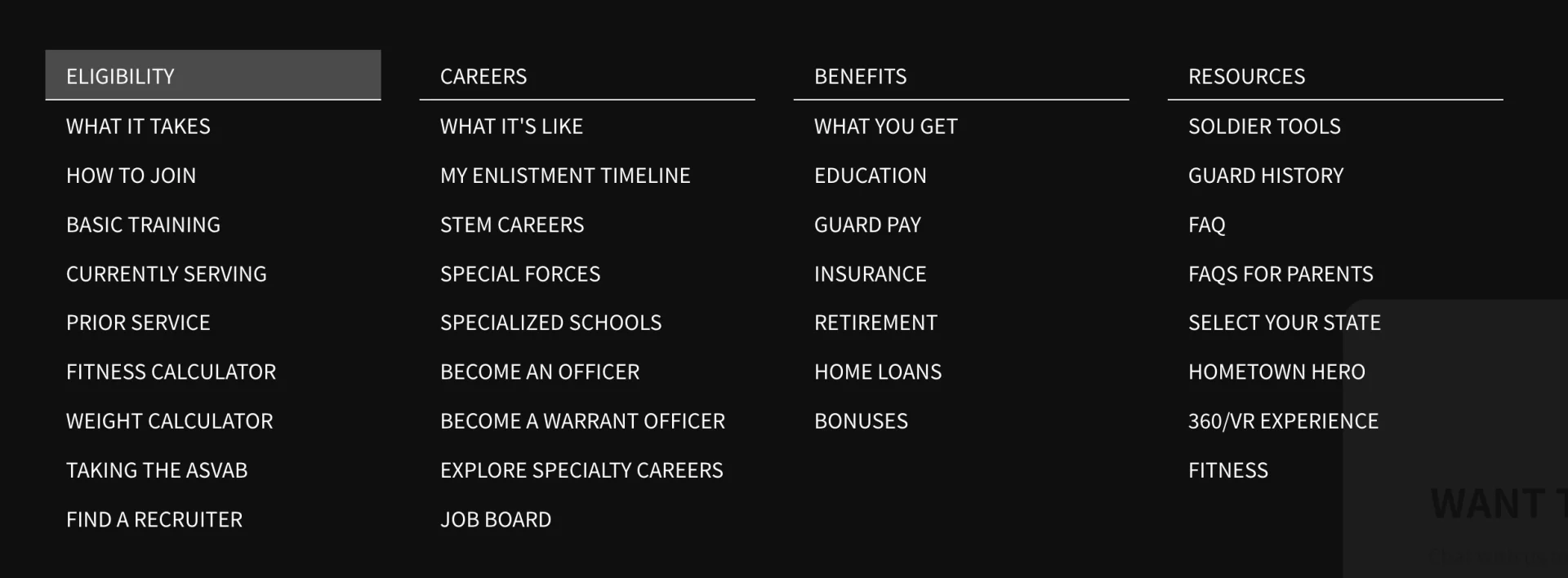
The decision to join the Army National Guard is a significant one, requiring careful consideration of various factors. Whether you’re a recent high school graduate, a college student, or a working professional, the National Guard offers a unique opportunity to serve your country while maintaining a civilian life. This article explores the key considerations that can help you determine the right time to join the Army National Guard, taking into account personal, educational, and professional aspects.
The Army National Guard plays a crucial role in the defense and security of the United States. As a reserve component of the United States Army, the National Guard serves both state and federal missions. Members of the National Guard typically serve part-time while maintaining civilian lives, training one weekend per month and two weeks per year. This unique structure allows individuals to contribute to their communities and nation while pursuing personal and professional goals.
Unlike active-duty military service, where individuals serve full-time and may be stationed anywhere in the world, the National Guard allows its members to serve part-time while living and working in their local communities. This flexibility makes it an attractive option for those who want to contribute to the military without committing to a full-time career in the armed forces.
The commitment to the Army National Guard involves a minimum service obligation, typically eight years, which can be divided between active and inactive status. During this time, members receive various benefits, including tuition assistance, health care, and retirement benefits. These perks make the National Guard an appealing option for individuals looking to serve their country while pursuing other personal and professional goals.
Determining the right time to join the Army National Guard requires a thorough assessment of personal readiness. This includes evaluating physical fitness, mental preparedness, and age considerations.
The Army National Guard has age requirements for enlistment, typically ranging from 17 to 35 years old. While age is a crucial factor, it’s essential to consider personal maturity and readiness for the responsibilities that come with military service.
Physical fitness is a fundamental aspect of military service. Joining the National Guard requires meeting certain fitness standards, including strength, endurance, and overall health. Assess your current fitness level and consider whether you are willing and able to meet and maintain these standards.
Military service, even in a part-time capacity, can be mentally challenging. Consider your resilience, adaptability, and commitment to the values of the National Guard. Mental preparedness is crucial for successfully navigating the demands of military life.
The Army National Guard accommodates individuals at various stages of their educational journey. Whether you’re a high school graduate, a college student, or a professional seeking further education, the National Guard provides opportunities for personal and academic growth.
For recent high school graduates, joining the National Guard can be an excellent way to gain valuable skills, receive financial assistance for college, and serve their country. The National Guard offers the Split Training Option, allowing individuals to attend basic training during the summer between their junior and senior years of high school.
College students often find the National Guard appealing due to its part-time commitment. The ability to balance military service with academic pursuits allows individuals to gain real-world experience while working towards a degree. The National Guard also provides financial assistance through programs like the Montgomery GI Bill and the Army National Guard Kicker.
Even if you have already completed your education or started a professional career, it’s not too late to join the National Guard. Many professionals find that the National Guard enhances their skill set, provides unique leadership opportunities, and offers financial benefits. Assess your career goals and consider how National Guard service aligns with your aspirations.
Joining the Army National Guard can have a significant impact on your civilian career. Understanding the potential effects and weighing the benefits is crucial when determining the right time to enlist.
The National Guard is designed to complement civilian careers rather than detract from them. Many employers value the leadership, discipline, and skills that National Guard service cultivates. However, it’s essential to communicate openly with your employer about your military commitments and discuss how they can be accommodated.
National Guard service provides a level of job security and stability, as members are protected by federal law from being terminated due to their military service. This protection, provided by the Uniformed Services Employment and Reemployment Rights Act (USERRA), ensures that individuals can return to their civilian jobs after completing military duty.
The skills acquired in the National Guard are often transferable to civilian careers. From leadership and teamwork to technical and specialized skills, National Guard members develop a diverse skill set that can enhance their professional capabilities in various fields.
Joining the Army National Guard is not only an individual decision but one that can impact family dynamics and relationships. Considerations related to spousal support, parenthood, and communication are essential when evaluating the right time to enlist.
Open communication with your spouse or significant other is crucial before making the decision to join the National Guard. Discuss the potential impact on family life, the benefits of military service, and how you both envision incorporating National Guard commitments into your shared future.
If you have children or are planning to start a family, consider how National Guard service aligns with your family planning. The flexibility of part-time service allows many Guard members to balance military commitments with family responsibilities, but it’s important to plan accordingly.
Effective communication and planning are key components of successfully integrating National Guard service into family life. Discuss your decision with family members, address any concerns they may have, and create a plan that ensures everyone’s needs are met.
Joining the Army National Guard comes with financial benefits, including pay, educational assistance, and healthcare. Understanding these implications is crucial when determining the right time to enlist.
National Guard members receive pay based on their rank and years of service, along with additional allowances for things like housing and food. In addition to regular pay, the National Guard offers various benefits, including health care, life insurance, and retirement plans.
One of the significant perks of National Guard service is educational assistance. Programs like the Montgomery GI Bill and the Army National Guard Kicker provide financial support for tuition and other education-related expenses. Assess your educational goals and consider how the National Guard can contribute to your academic pursuits.
Military service can have financial implications, and it’s essential to plan accordingly. Evaluate your current financial situation, create a budget that considers both civilian and military income, and plan for any potential expenses associated with National Guard service.
Deciding when to join the Army National Guard is a personal journey that involves careful consideration of various factors. From personal readiness and educational timing to professional and family considerations, evaluating these aspects will help you make an informed decision. The National Guard offers a unique opportunity to serve your country while pursuing your individual goals, and choosing the right time to enlist ensures a fulfilling and successful military experience.
The standard commitment period for the Army National Guard is eight years. This commitment can be divided between active and inactive status, allowing flexibility in service.
Yes, the National Guard is a popular choice for college students due to its part-time commitment. The flexibility allows individuals to balance military service with their academic pursuits.
National Guard service can enhance your civilian career by providing valuable skills and leadership experience. The Uniformed Services Employment and Reemployment Rights Act (USERRA) protects Guard members from job discrimination due to their military service.
The age requirements for joining the Army National Guard typically range from 17 to 35 years old. However, waivers may be available in certain circumstances.
Yes, the Army National Guard has specific physical fitness requirements that individuals must meet. These standards ensure that members can handle the physical demands of military service.
National Guard members may be called to active duty during times of need, such as national emergencies or military conflicts. However, the part-time nature of National Guard service means that deployments are typically shorter than those of active-duty personnel.
The National Guard offers educational benefits, including the Montgomery GI Bill and the Army National Guard Kicker. These programs provide financial assistance for tuition and other education-related expenses.
The National Guard recognizes the importance of family support and provides resources to assist families during deployments or other challenges. Family readiness programs, counseling services, and community support are available.
Yes, it is possible to transition from active duty to the National Guard. The process involves coordinating with the respective branches and may require fulfilling any remaining service obligations.
New Image Uploaded: Recruiting and Retention Campaign materials have been updated. Please review the latest visuals.

Quisque rutrum. Curabitur ligula sapien, tincidunt non, euismod vitae, posuere imperdiet, leo. Fusce vel dui. Integer tincidunt. Nam pretium turpis et arcu.
Lorem ipsum dolor sit amet, consectetur adipiscing elit. Ut elit tellus,